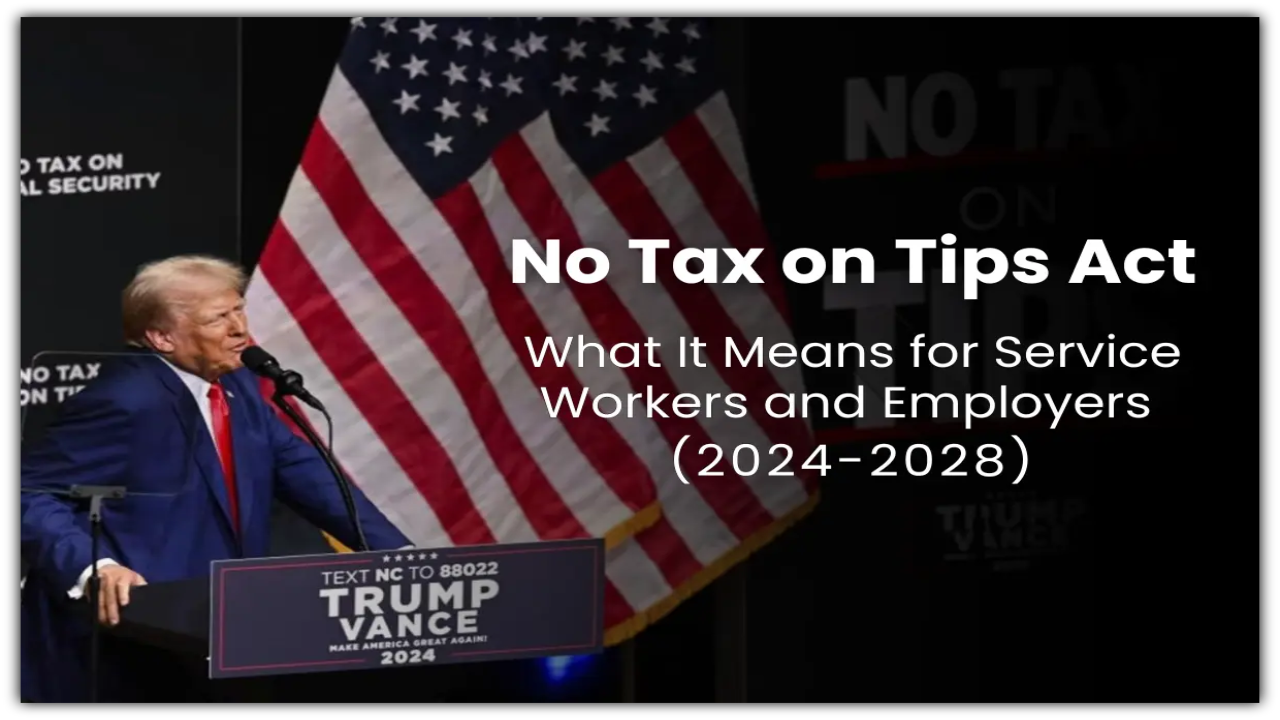Say Goodbye to Taxing Your Tips? What the ‘No Tax on Tips Act’ Means for You!
If you work in a job where tips are a big part of your paycheck — like waiting tables, bartending, or doing hair — you might’ve heard about this new bill called the “No Tax on Tips Act.” It’s getting a lot of buzz because it could actually change how much of your hard-earned tip money you get to keep after taxes.
So, What’s This Bill About?
Right now, the IRS treats your tips like regular income. That means you have to pay taxes on them just like you do on your regular wages. And if you’re someone who depends on tips to pay the bills, that can add up.
The “No Tax on Tips Act” wants to change that by letting workers deduct up to $25,000 in tips a year from their taxable income. Translation: if you make $25,000 or less in tips during the year, you won’t have to pay federal income tax on those tips.
Who Would This Help?
Not everyone, but if you:
-
Make less than $160,000 a year total,
-
Work in a job where tips are the norm (think servers, bartenders, hairstylists),
-
And you report your tips to your employer like you’re supposed to,
then this bill could save you some money at tax time.

Why Does This Matter?
For lots of people in these jobs, tips are a huge chunk of their income — sometimes the biggest chunk. And tips aren’t always steady; some months they’re great, some months they’re not. Paying taxes on unpredictable income that you might barely get can be a real headache.
Say you make $40,000 a year in wages and another $5,000 in tips. If this bill becomes law, you could save around $600 in taxes on those tips. It’s not a fortune, but hey — every little bit helps, right?
What About the Businesses?
Businesses that rely on tipping workers also stand to gain. The bill offers them some payroll tax credits, which could help ease their costs a bit.
But Hold Up — It’s Not Perfect
No bill is perfect, and this one has its share of critics.
-
Lots of tipped workers don’t make enough to pay federal income taxes anyway, so this might not help them much.
-
Some worry employers might cut workers’ base wages even more since tips would be taxed less.
-
There’s also the “tip fatigue” problem: if customers think tips aren’t taxed, they might tip less, which could end up hurting workers.
-
Plus, keeping track of who qualifies and making sure tips are reported properly could be a headache for everyone involved.
Where Are We Now?
The Senate already gave the thumbs up to this bill. Now it’s up to the House to decide. If it passes, workers could see the benefits starting with their 2025 taxes — filed in 2026.
If you’re a tipped worker, this bill could mean a little more cash in your pocket. But it’s not a magic fix for all the money struggles tipped workers face. Still, it’s definitely worth watching.
And if you run a business with tipped employees, this might be a good time to start thinking about how this could change things for your payroll.


Comments are closed, but trackbacks and pingbacks are open.